striper-menhaden correlation
Do you have any thoughts on this post?
Conservationists fear that the fox could end up guarding the henhouse in menhaden certification process
In a biting piece of satire in the May 2019 issue of Sport Fishing Magazine, editor Doug Olander took aim at Omega Protein’s efforts to have its industrial harvest of menhaden certified as a sustainable fishery by the Marine Stewardship Council. The company apparently took issue with Mr. Olander’s characterization of the process as Omega “buying its way to respectability” and looking to “wrap itself in a cloak of respectability by claiming it’s a certified sustainable fishery.”
Omega Protein stated in its media response:
“Mr. Olander isn’t just wrong about the independence and integrity of the MSC process; he gets key facts wrong about the fishery, making wild, misleading claims. He blames the ‘industrial menhaden-reduction fishery’ for current problems facing striped bass. But this ignores all of the available evidence. According to the ASMFC, striped bass are overfished, and overfishing of the species by recreational anglers has been cited as the main cause, the same anglers which are Mr. Olander’s primary audience. The issues facing striped bass are due to overfishing.”
Omega’s eagerness to silence critics and divert attention to anything other than its own operations for the problems in the striped bass fishery is nothing new. The menhaden reduction fishery is a true relic of the past and one of the most reviled in the entire country. Using spotter planes and a purse seine fleet to encircle and remove entire schools of menhaden, Omega catches millions of pounds of one of the most important sources of forage along the Atlantic Coast every year, and reduces them to fish oil pills and feed for aquaculture operations, among other things.
Anglers in the region have long believed the company’s relentless pressure on menhaden in the Chesapeake Bay, the primary nursery ground for striped bass and many other sportfish, has caused localized depletions of forage, leading to an increase in diseased, stressed, and skinny fish in the Bay.
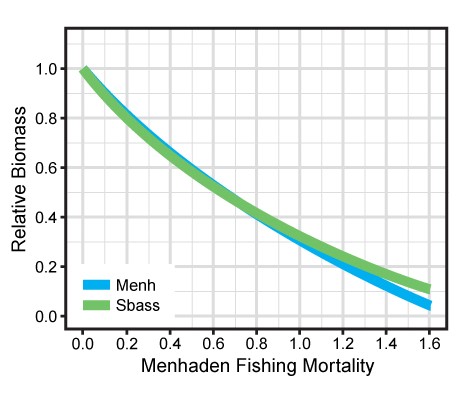
Striped bass are indeed experiencing overfishing, and anglers are acting to reverse that trend by working with managers to reduce limits and curb catch-and-release mortality. But a prolonged period of low striped bass spawning success is a large part of the problem.
That may very well be tied to inadequate forage in the Bay, no matter how much Omega would like to protest otherwise. In fact, the best available evidence is that the reduction fishery may be driving a nearly 30-percent reduction in striped bass.
Mr. Olander is certainly not alone in questioning the Marine Stewardship Council and its practices. In the past, the MSC has been funded in part from royalties paid by seafood processors using the MSC ecolabel.
Third-party certifiers are paid by the entity seeking certification, and if the certification is successful, those third-party certifiers often receive long-term contracts to monitor chain-of-custody of the products and update reviews of the fishery every five years. In other words, both the MSC and the independent reviewers stand to benefit financially from a successful certification.
In 2011, the science journal NATURE published a sharp critique of the MSC process, claiming that after the signing of a contract between the MSC and Wal-Mart, the number of certified seafood products skyrocketed. One of the fisheries that qualified for possible certification around that time was the U.S. Southeast Coast swordfish and big eye/yellowfin tuna fisheries.
At the time, Billfish Foundation President Ellen Peel remarked, “It is inconceivable that the MSC could grant approval to longline gear that causes 90 percent of the mortality on marlins, spearfish, and sailfish bycatch across the Atlantic.”
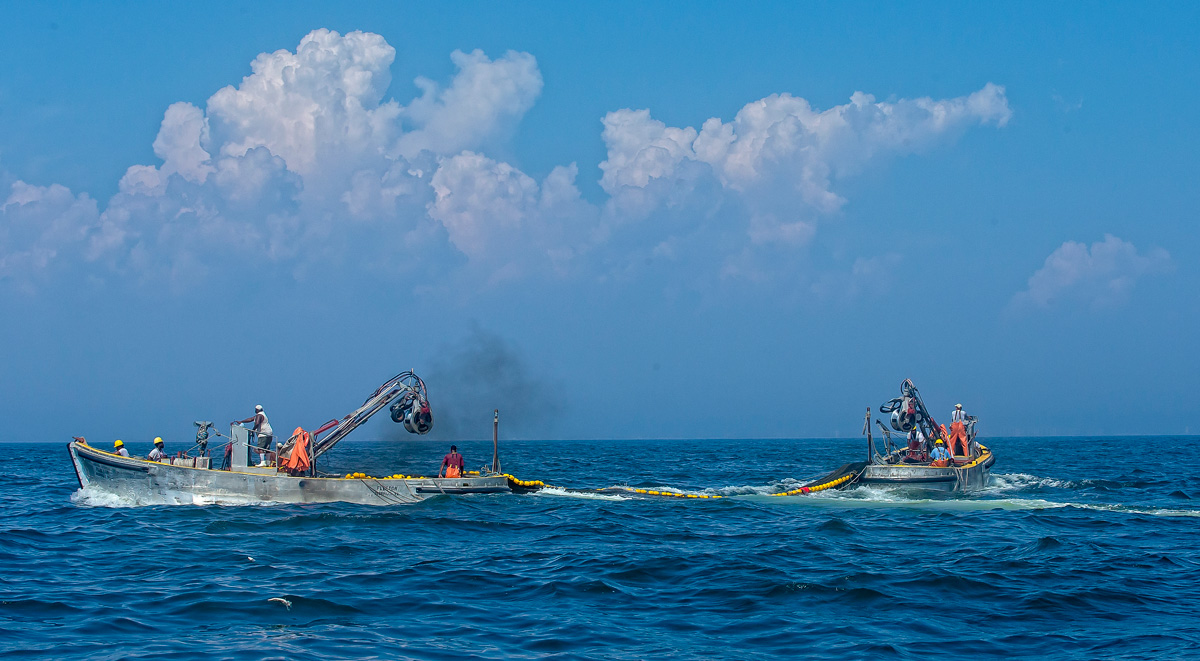
Even today, when entities formally object to a certification—as Coastal Conservation Association, the American Sportfishing Association, the Theodore Roosevelt Conservation Partnership, the Nature Conservancy and the Chesapeake Bay Foundation are currently doing with Omega’s menhaden certification—an independent adjudicator decides whether they have “a reasonable prospect of success.” If so, the objectors are then required to pay a roughly $6,000 “objection fee” to proceed.
It is easy to get the feeling that the MSC process is less about sustainability and more about whose pockets are deep enough.
In January 2019, the state of Virginia formally notified the MSC of its opposition to certification of the menhaden fishery. In April 2019, New York Governor Andrew Cuomo signed legislation to protect menhaden in New York’s waters by prohibiting harvest by purse seine, essentially rejecting the industrial harvest of menhaden.
These two states, along with conservation groups and tens of thousands of concerned anglers, all share the same deep-rooted concerns that management efforts to date have failed to account for the menhaden’s critical ecological role in the Atlantic coastal ecosystem. There are huge unknowns about the bycatch associated with Omega’s menhaden harvest, and while Omega claims menhaden aren’t overfished, the amount of menhaden needed for the ecosystem is still being investigated by a dedicated team of assessment scientists expected to be concluded at the end of this year.
So, it remains unclear why MSC would certify the fishery now instead of waiting for the results of this assessment.
Mr. Olander is correct to question whether the fox is guarding the henhouse when it comes to MSC certification of Omega’s industrial menhaden fishery. The company’s aggressive tactics to silence critics, like Olander, should only serve as a warning that more light needs to be cast on this entire process.
The preceding editorial is submitted by the Coastal Conservation Association, American Sportfishing Association, and Theodore Roosevelt Conservation Partnership.
TRCP’s “In the Arena” series highlights the individual voices of hunters and anglers who, as Theodore Roosevelt so famously said, strive valiantly in the worthy cause of conservation
Hometown: Birdsboro, Pa
Occupation: Full-time human resources professional and part-time flyfishing writer, photographer, and custom fly-tier and instructor
Conservation Credentials: Helped to preserve working lands, environmentally sensitive areas, and outdoor recreation opportunities—like fishing and birdwatching—for future generations through various roles in local government
Henry Ramsay considers himself a torchbearer for the natural resources that have allowed him to spend a lifetime fishing, hiking, camping, taking photographs, and finding solace in the outdoors. His efforts to preserve public lands and waters for the next generation of sportsmen and women remind us that you don’t have to sit on a congressional committee or in the Oval Office to make a big difference for conservation. There’s a lot we can influence in our home towns and counties, if we care enough.
Here’s his story.
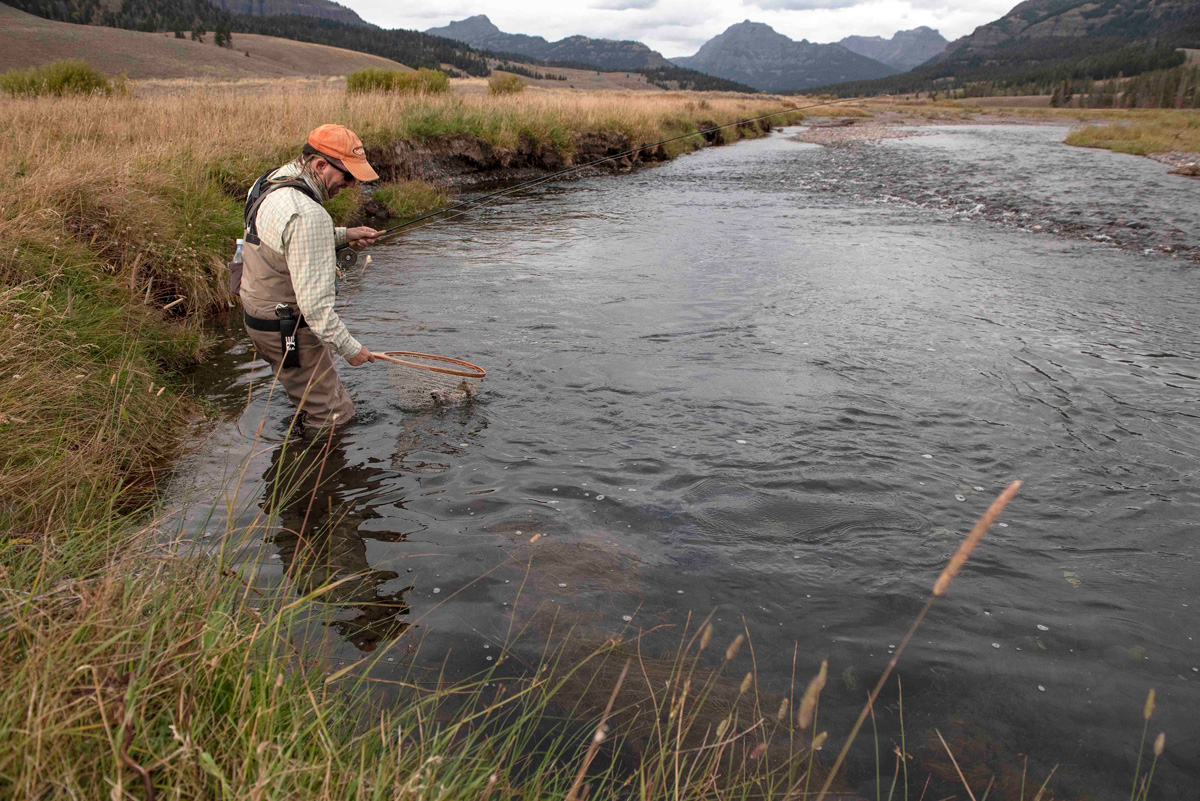
I caught my first trout at the age of five, and I was hooked about as well as that fish was. Fortunately, I also grew up in a family that constantly traveled and camped. I’ve always been attracted to the outdoors—more because of my love of nature than anything else. It’s not only a source of recreation; it’s a place of peace and contentment, so I fish, camp, hike, and take photographs as much as my time permits.
Of course, as a flyfisherman, a nice fly rod is one of my favorite pieces of gear and elevates the experience of being outdoors, but my DSLR camera is perhaps just as important. It’s always with me to capture images from my best experiences on the water.
I had plenty of those on a recent trip to Yellowstone, which was a lifelong dream of mine. We tent-camped in the park, fished 10 different streams and rivers, and hiked into a glacial lake to fish for Arctic grayling. During the day, we saw bison, elk, antelope, wolves, coyotes, and bighorn sheep. At night, we were serenaded by bugles and howls.
It was an incredible experience that stands out even after a lifetime of travels.
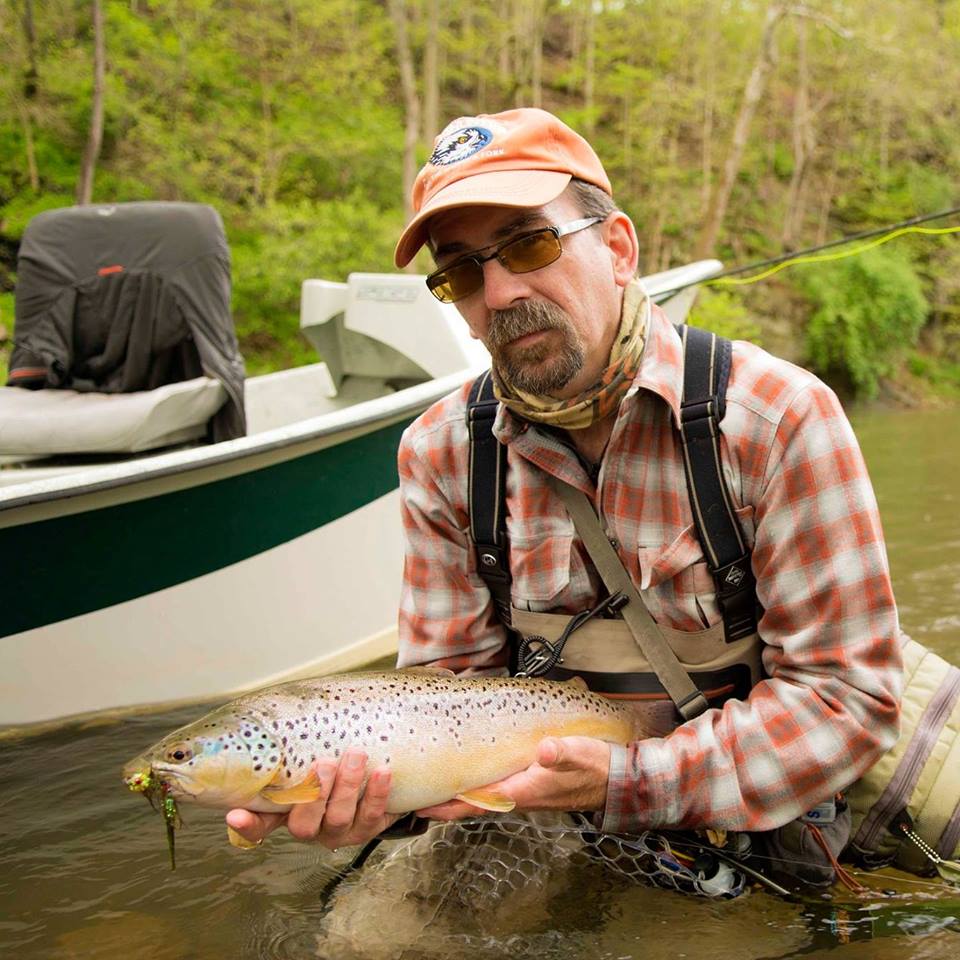
I’m fortunate to have fished in a number of states, but if forced to choose one it would be Idaho. The scenery is spectacular and the fishing is world-class. I love the Henry’s Fork where it flows through the Harriman Ranch. The fishing there is highly technical and challenging—I like that it forces me to be on form.
I’m primarily a trout fisherman, and you can’t find trout in environments that have been compromised by point-source pollutants, toxic runoff, or other things that detract from water quality. Wild trout simply can’t exist in less than high-quality water conditions—and that’s why clean water powers my outdoor life.
In a world where the human population is growing at a rapid pace, it is critical that we continue to examine our impact on the earth, the natural world, and all of the lifeforms we share it with. People alter the environment, and the choices we make can affect the environment positively or negatively—forever.
To leave my mark, I’ve been involved in various roles in local government, where I’ve been fortunate enough to help shape how our lands and waters are used. For example, collaborative work helped to permanently preserve the Birdsboro Waters, a 1,800-acre tract of unbroken forest within the Hopewell Big Woods of southeastern Pennsylvania. This is an important birding area, and Hay Creek, an exceptional trout stream, flows through it. I was part of the advisory body that defeated a proposed 800-unit residential development on 201 acres bisected by a state-designated coldwater trout stream. I also helped to create an Environmental Advisory Council in my township to review and consult on proposed land development activities.
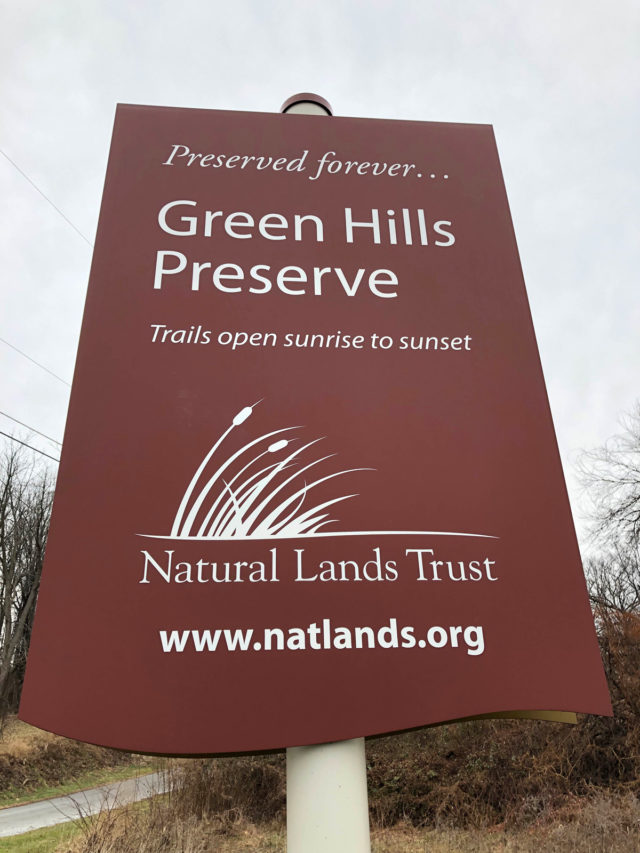
Not all of the footprints left on the earth are made by feet—many of them are a result of our choices. My hope is that improvements made to public lands and waters during my lifetime won’t be easily erased by politics and profiteers. We need to leave healthier habitat for future generations.
This is why I concern myself with the deregulation of the Clean Water Act, Clean Air Act, and Antiquities Act. These rollbacks pose a huge threat to all of the efforts that have taken place since the early 1970s.
The other challenge I see is the lack of involvement and education of our youth in the outdoors. When I can no longer carry the torch to defend what we treasure, I hope a new generation of torchbearers can take my place. But too many children today do not get the exposure to the outdoors that they’d need to be sensitive to conservation issues. It’s a threat to fishing and the places where we fish.
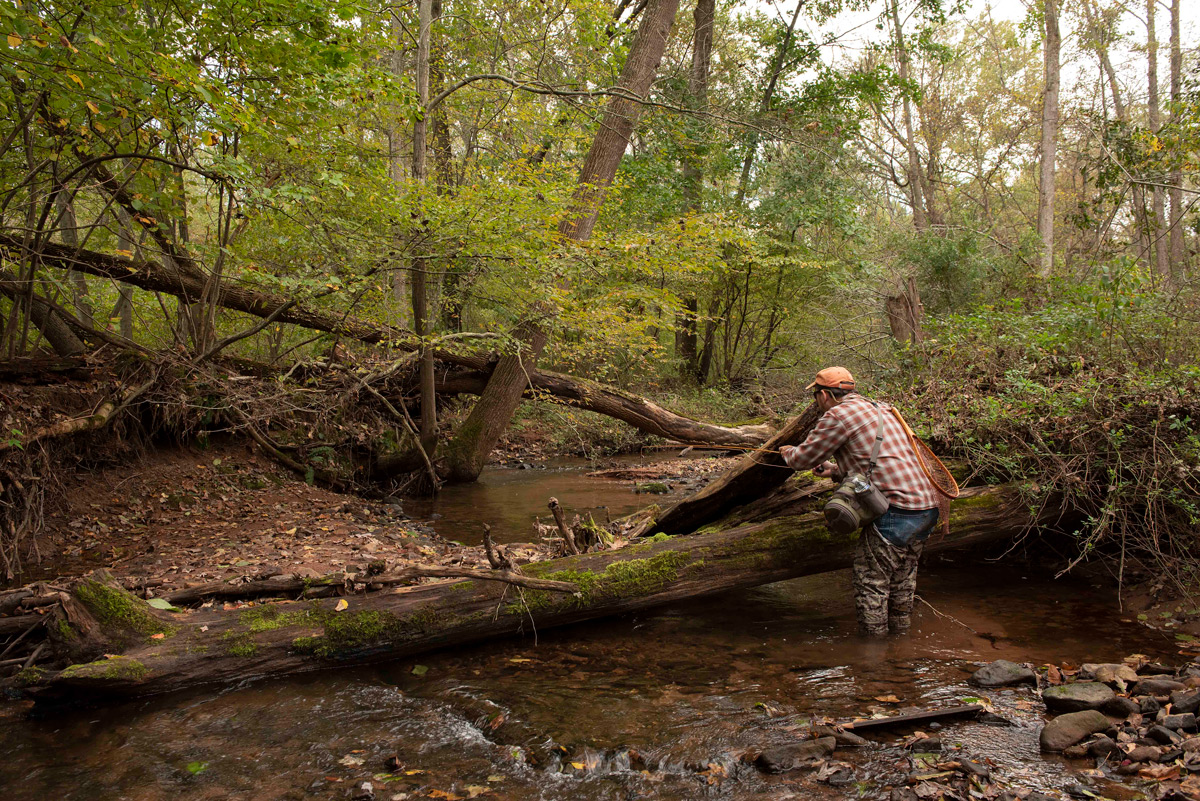
Hunters and anglers call for swift passage of this critical public lands legislation
The Sportsmen for the Rubies, a coalition of 14 hunting, fishing, and wildlife conservation groups representing thousands of individual sportsmen and women, expressed appreciation for a subcommittee hearing Tuesday on the Ruby Mountain Protection Act (S.258). This development, which took place in the Senate Energy and Natural Resources Subcommittee on Public Lands, Forests, and Mining, marks the first progression for the bill since its introduction by Senator Catherine Cortez Masto (D-NV).
If passed into law, the act would conserve Nevada’s Ruby Mountains by permanently withdrawing from oil and gas exploration 450,000 acres in the Humboldt-Toiyabe National Forest’s Ruby Mountain Ranger District.
“Hunters, anglers, and a wide array of stakeholder groups have been vocal supporters of the bill from its inception,” said Joel Webster, director of the Theodore Roosevelt Conservation Partnership’s Center for Western Lands. “The Ruby Mountains, known as the Swiss Alps of Nevada, contain some of the region’s finest outdoor opportunities and serve as the foundation of a $165 million outdoor recreation economy in Elko County.”
Last week, the Sportsmen for the Rubies coalition sent a letter to the committee chair and ranking member, urging a speedy vote on the bill so that it can proceed to the Senate floor.
The groups highlighted the importance of the area as fish and wildlife habitat in addition to its tremendous economic value as a recreational destination. The Ruby Mountains are home to a number of unique species such as the Lahontan cutthroat trout and the Himalayan snowcock, as well as Nevada’s largest mule deer herd.
“The Rubies are an incredible fish and wildlife resource as well as an economic engine for rural Nevada, said Pam Harrington, Nevada field coordinator with Trout Unlimited. “We are pleased the Nevada delegation is working with the sportsmen’s community to protect the Rubies.”
“Sportsmen and women throughout Nevada appreciate the subcommittee’s timely hearing on this bill,” said Tom Smith, the vice president of the Coalition for Nevada’s Wildlife. “We hope that leadership will commit to a markup and move this legislation to the floor for passage, so that future generations can enjoy the Ruby Mountains as we do today.”
Photo: USDA Intermountain Forest Service via Flickr
Mystery Ranch is a Bozeman, Montana-based backpack and gear company that knows a thing or two about hauling heavy loads over unpredictable terrain. So, it’s only fitting that they’ve been carrying more than their weight in the world of conservation.
Here’s their story:
We have around 100 people working at Mystery Ranch—this includes folks in production, our warehouse, warranty and repair, operations, product development, accounting, sales, marketing, IT, customer service, and more. It’s an incredibly diverse workforce from all over Montana and the rest of the U.S. with different ages, interests, and backgrounds. Preferred outdoor activities run the gamut, from backcountry skiing, ice and rock climbing, and trail running to precision shooting, bow-hunting, and fly-fishing.
All of these activities require two key ingredients: public land and access to it. What we do here, and the packs and gear we design and build, fuels these passions.
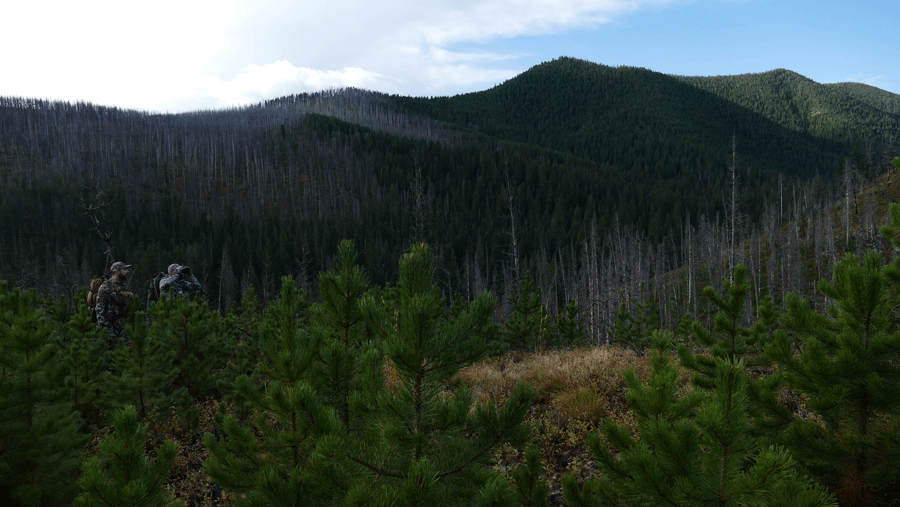
Our location in Bozeman certainly helps us—it may sound cliché, but we really do live in one of the best places for folks who love being outside. All kinds of opportunities on the water or in the mountains are available right in our backyard. And that fuels a company culture that is open, friendly, and just plain fun.
Without question, the passions we pursue deepen our commitment to conservation. We support a wide-ranging group of organizations in whatever ways that we can. We donate products for auctions and raffles at events like the TRCP’s Capital Conservation Awards Dinner, and for several years have sponsored the Western Media Summit.
We also believe we should stand up on issues and initiatives that we know are important. Recently, we signed on to a letter from the business community calling for a balanced roadless rule for Alaska, and we’ve also supported the TRCP’s Sportsmen’s Country and Sportsmen’s Access campaigns. At the end of the day, we want to make sure that as a company we support those who do the vital work, educate, inspire, and make a difference.
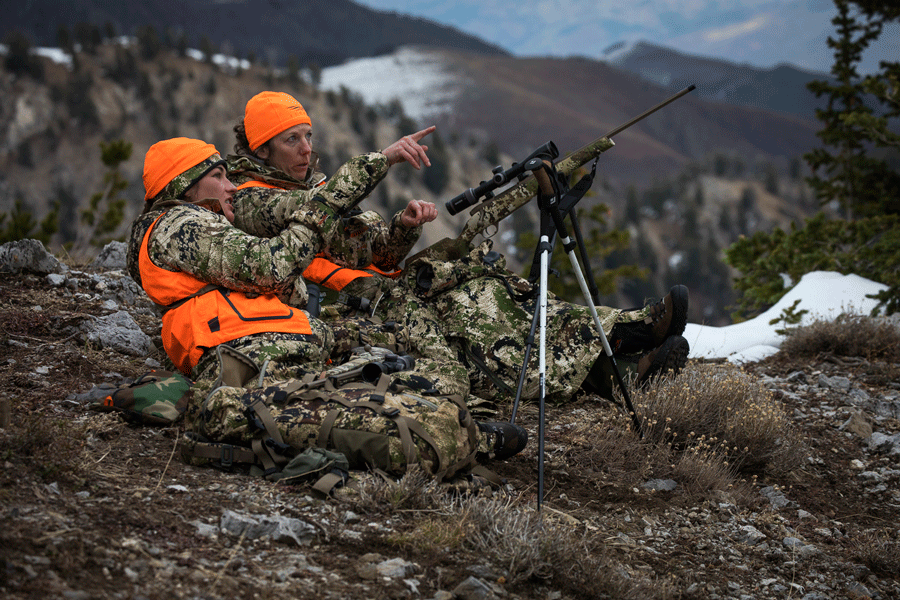
This is especially true with our hunting and outdoor product lines—so many of our customers and employees are personally involved in groups that advocate for public lands, trail maintenance, public access, watershed improvements, or habitat expansion and protection.
We know that our business—and our individual opportunities—depend on these efforts, and we think there’s real strength in the overlapping values and interwoven missions of companies like ours and the causes we support.
In short, we build packs and gear for people who love the outdoors and fiercely defend it. That means protecting the rivers and streams we float and fish; ensuring the mountains we hike, hunt, and ski remain public; and working to see that these opportunities will be available today, tomorrow, and beyond.
You can learn more about Mystery Ranch and the causes they support at MysteryRanch.com.
TRCP has partnered with Afuera Coffee Co. to further our commitment to conservation. $4 from each bag is donated to the TRCP, to help continue our efforts of safeguarding critical habitats, productive hunting grounds, and favorite fishing holes for future generations.
Learn More
Sign up below to help us guarantee all Americans quality places to hunt and fish. Become a TRCP member today.
